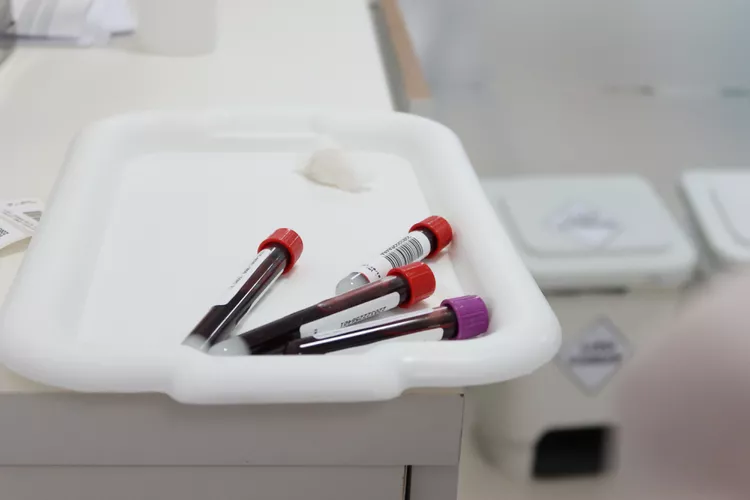Alzheimer’s disease is a progressive neurodegenerative disorder that poses a significant challenge to individuals, families, and the healthcare system. Currently, diagnosing Alzheimer’s often takes a long time and involves a series of complex evaluations. However, new blood tests for Alzheimer’s disease hold the promise of reducing diagnosis time by years, potentially transforming the way we detect and manage this debilitating condition.
Alzheimer’s disease is characterized by the accumulation of amyloid plaques and tau tangles in the brain. Traditionally, diagnosing Alzheimer’s has relied on cognitive assessments, imaging studies such as magnetic resonance imaging (MRI) and positron emission tomography (PET), and sometimes invasive procedures like lumbar punctures to measure biomarkers in the cerebrospinal fluid. These methods can be time-consuming, expensive, and not always accessible to everyone.
The new blood tests for Alzheimer’s detect specific biomarkers related to the disease. For example, some tests measure levels of amyloid and tau proteins in the blood. These proteins are known to be involved in the development and progression of Alzheimer’s. By detecting changes in their levels, the tests can provide an indication of whether a person is at risk of developing Alzheimer’s or already has the disease.
One of the major advantages of these blood tests is their convenience. Unlike imaging studies or lumbar punctures, blood tests can be easily performed in a doctor’s office or a laboratory. They are less invasive and less expensive, making them more accessible to a larger number of people. This could lead to earlier detection of Alzheimer’s, as individuals who may not have had access to more complex diagnostic methods can now be screened with a simple blood test.
For instance, imagine a person who has been experiencing mild memory problems. With the new blood tests, they could be quickly screened for Alzheimer’s biomarkers. If the test results are positive, further evaluations can be initiated promptly, rather than waiting for symptoms to progress to a more severe stage before considering a diagnosis. This could potentially reduce the diagnosis time from years to months or even weeks.
Early diagnosis is crucial in the management of Alzheimer’s disease. When diagnosed early, individuals and their families can make informed decisions about treatment options, lifestyle changes, and future planning. Medications and therapies may be more effective when started early in the disease process, and early intervention can also help slow down the progression of the disease and improve quality of life.
Moreover, the new blood tests could also be used for population screening. This could help identify individuals at high risk of developing Alzheimer’s, allowing for targeted prevention strategies and early interventions. For example, people with a family history of Alzheimer’s or certain genetic risk factors could be screened regularly to detect early signs of the disease.
However, it’s important to note that while the new blood tests show great promise, they are not without limitations. The results of these tests need to be interpreted carefully, as they may not be 100% accurate. False positives and false negatives can occur, and further confirmatory tests may still be needed in some cases. Additionally, more research is needed to understand the full implications of the blood test results and how they correlate with the progression of the disease.
In conclusion, new Alzheimer’s blood tests have the potential to revolutionize the diagnosis of this devastating disease. By reducing diagnosis time by years, they could enable earlier detection, better management, and improved outcomes for individuals with Alzheimer’s. As research continues to refine these tests, they may become an important tool in the fight against Alzheimer’s disease.

